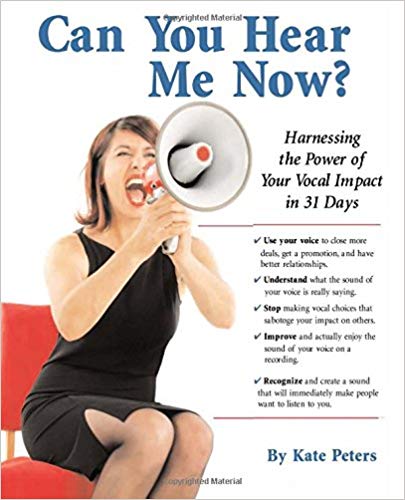Job Seekers: Interviewing and Your Vocal Impact
Recently a reader wrote:
“I was putting together some info for an article on body language during a job interview. Some of these articles mentioned the voice as well. Do you have any articles from your perspective on that?”
Although I like to think that my general message is one that can be applied to any situation, I think it’s a great idea to feature a post on using your voice effectively in job interviews, and highlight some deeper reading in other posts and resources you can view on the subject of job interviews.
Vocally, there are three areas that are the most important considerations in an interview.
Intention:
Know who you are and what you are looking for. Create a personal statement of intention for the job you want as well as for the interview. Make it short and sweet and memorize it. Then let it guide your discussion. If you are clear about who you are and what you want, answering questions and asking them will be much easier. In addition, intention can be heard in your voice. If your delivery, content, and intention are not in alignment, your credibility may be affected. For more on this topic, dig deeper by reading How to Start an Important Conversation: an Exercise in Intention.
Stories:
Always tell stories rather than merely listing a lot of facts. Personal stories make you “real” and engage others in your story. People are drawn to stories. When you tell your interviewer a story, it can’t help but remind her of her own story, and that creates a connection. When people tell personal stories, their voices reflect more of the emotion behind their words, and, again, their genuine nature is revealed rather than a superficial persona. This is good.
For more on this, please read From Information to Imagination: Delivering a Good Story, and please visit Kathy Hansen’s excellent story blog with an emphasis on storytelling in business, A Storied Career.
Three considerations for dealing with nerves and your voice:
Ground yourself and your voice:
Sit forward in your chair, with both feet on the ground, or one slightly behind the other as if you were ready to stand up. Keep energy in your thighs. Be sure you are breathing! For more on this, here’s a post I wrote for Six Minutes, Breathing: The seductive key to your vocal variety. It includes some exercises to get you breathing correctly.
Hydrate for energy and clarity.
Drink lots of water before the interview and during, if it’s offered. Being dehydrated makes you have to clear your throat. Nerves will do that as well. Don’t make it worse! It takes about 30 minutes for the voice to get lubricated if you are not hydrated so be sure to tank up at least 30 minutes before you go “on.” For more on this topic, see Water it! Feed your voice, Part 2.
If your voice shakes or quakes, stop.
Breathe to get oxygen. Swallow to make sure your larynx isn’t going up (a high larynx will force you to swallow and make your voice rise in pitch). Then go on. For more on this topic, please see Who Let the Frogs Out? 3 Quick Remedies for Voice Malfunctions.
If you have questions or comments, please post them! Or let’s continue the conversation on Twitter, Instagram, and LinkedIn.
For more help job seeking, see How to Curate Your Own Personal Job Feed by Lindsay Pollack on the Harvard Business Review Blog Network.
Connect with us on LinkedIn
Connect with the author on LinkedIn
ID 139894199 © Fizkes | Dreamstime.com





